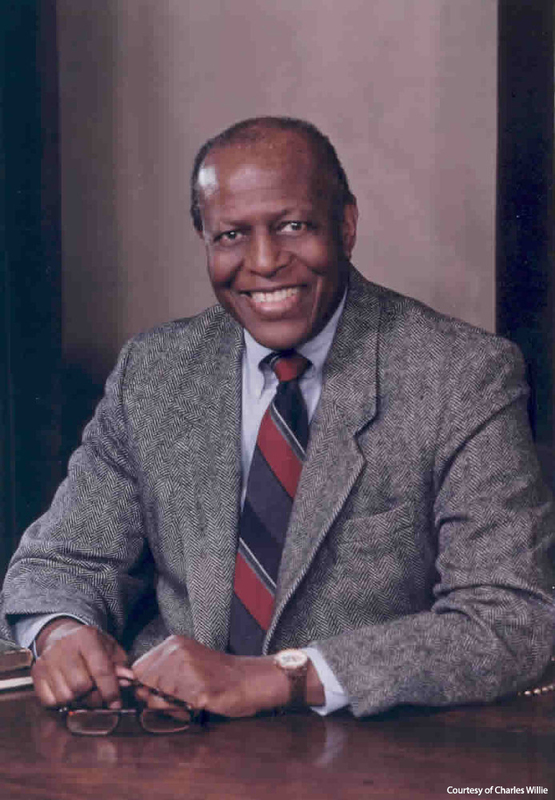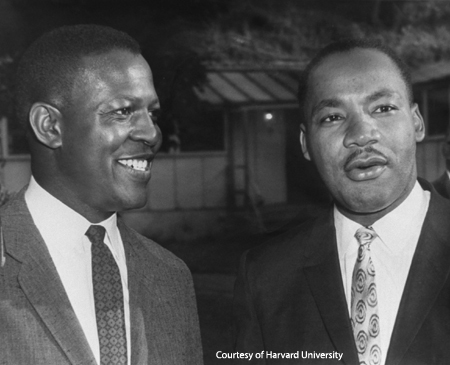Leadership Gallery
Charles Vert Willie, 1927-2022
As blacks refused to participate in their own oppression by going to the back of the bus in 1955 in Montgomery, women are refusing to cooperate in their own oppression by remaining on the periphery of full participation in the Church in 1974 in Philadelphia.
- Charles Willie
Charles V. Willie, sociologist and Charles William Eliot Professor of Education, Emeritus, Harvard University.
Dr. Charles Willie, Professor of Sociology, explores the problem of growing urban diversity coupled with increasing neighborhood segregation, and discusses the interdependence of the races, 1969.
Charles Vert Willie is an educator, social activist, sociologist, and expert in school desegregation. He graduated in 1948 from Morehouse College, and then went to Atlanta University and earned a master’s degree followed by a Ph.D. in sociology from Syracuse University nine years later. Willie held the positions of chair of the Department of Sociology and vice president for student affairs of the university at a time when African Americans were seldom appointed to such positions. In 1974 he went to Harvard University to become the Professor of Education and Urban Studies, and later the Charles William Eliot Professor of Education at the Graduate School of Education.
Over the years he has served as a consultant, expert witness, and court appointed master in major school desegregation cases across the nation. President Jimmy Carter appointed Dr. Willie to the President’s Commission on Mental Health. In 1968 he was elected to the Church’s Executive Council, and was twice elected as the vice president of the House of Deputies, in 1970 and 1973. He was the first African American elected to this office in the General Convention.
In 1974 he participated as a lay-preacher in the ordination of the first women priests known as the “Philadelphia 11.” A majority of the House of Bishops considered the ordinations to be invalid. In protest, Willie resigned as the vice president of the House of Deputies of General Convention.
Willie has honorary degrees from Berkeley Divinity School, Episcopal General Seminary, and Seabury-Western Theological Seminary, as well as the Episcopal Divinity School for distinguished and faithful ministries in social justice. He has authored or edited more than 25 books and articles addressing issues such as women’s rights, community development, race relations, and urban education. Morehouse-Barlow published his book entitled Church Action in the World in 1969. [Sources]




